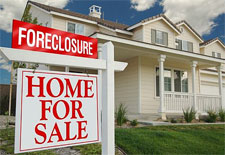 A new subsidiary of a national asset management firm has been founded to help resolve some of the problems experienced by Homeowners Associations (“HOAs”) and the mortgage industry in the resale of foreclosed and defaulting residential properties. A press release by the newly formed company, Sperlonga Data and Analytics, states that HOA claims for unpaid dues “frequently create problems and delays” in the sale process. Sperlonga believes that these delays cause “hundreds of millions of dollars in losses for the mortgage industry annually, largely because parties have no means to contact one another.”
A new subsidiary of a national asset management firm has been founded to help resolve some of the problems experienced by Homeowners Associations (“HOAs”) and the mortgage industry in the resale of foreclosed and defaulting residential properties. A press release by the newly formed company, Sperlonga Data and Analytics, states that HOA claims for unpaid dues “frequently create problems and delays” in the sale process. Sperlonga believes that these delays cause “hundreds of millions of dollars in losses for the mortgage industry annually, largely because parties have no means to contact one another.”
Sperlonga seeks to help facilitate contact with HOAs, lenders and other lien holders. Their goal is to resolve outstanding HOA obligations before they can negatively impact the resale process. “After hearing again and again of homeowners’ associations creating issues at closing for parties wanting to buy and sell assets, it became evident that this problem was costing the industry tremendous amounts of time and money…With no single source of reliable association data or standardization in place to manage this process, we saw an immediate opportunity to deliver a solution with real value for all parties.” (Sperlonga’s chairman and CEO).
Sperlonga will provide a “centralized repository” for HOAs to submit their demands for unpaid assessments. These demands will then be directed by Sperlonga to the appropriate party for payment–usually a bank or other financial institution.
|
It is great to see the attention being given to the difficulties experienced by HOAs attempting to collect on unpaid assessment obligations and how HOAs are suffering from significant foreclosures and vacancies. Any efforts made by service providers and those in the mortgage industry to provide a more efficient resale process for distressed properties will certainly help HOAs and their communities. |
 HOA Lawyer Blog
HOA Lawyer Blog



 In an effort to collect unpaid assessments, Associations have the power pursuant to
In an effort to collect unpaid assessments, Associations have the power pursuant to